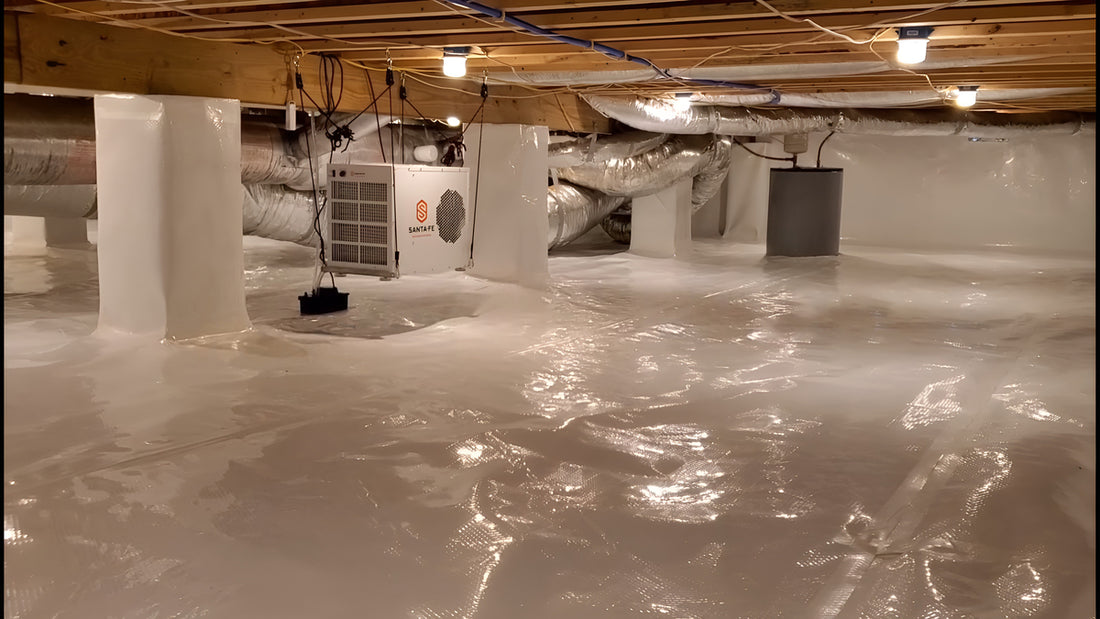Crawl space encapsulation is a powerful solution to address moisture issues and enhance the overall health of your home. As homeowners embrace this transformative process, questions often arise about the necessity of incorporating a dehumidifier into an encapsulated crawl space. In this blog, we'll explore the factors that determine whether you need a dehumidifier in your encapsulated crawl space and the benefits it can bring to your home.
Understanding Crawl Space Moisture:
Before delving into the need for a dehumidifier, it's crucial to recognize the potential for moisture-related issues in crawl spaces. These spaces are susceptible to humidity, which can lead to mold growth, wood rot, and compromised indoor air quality. Encapsulation addresses these concerns by creating a barrier that seals off the crawl space from external elements, preventing moisture infiltration.
Factors Influencing the Need for a Dehumidifier:
-
Climate and Location:
- Homes in humid climates or regions prone to excessive moisture may benefit significantly from a dehumidifier. High levels of humidity can overwhelm the encapsulation system, and a dehumidifier acts as an additional line of defense against excess moisture.
-
Crawl Space Size:
- The size of your crawl space plays a role in determining whether a dehumidifier is necessary. Larger crawl spaces may require more extensive moisture control measures, and a dehumidifier becomes a valuable tool to maintain optimal humidity levels.
-
Existing Moisture Issues:
- If your crawl space has a history of moisture problems or if you've recently encountered issues such as standing water or mold growth, incorporating a dehumidifier can expedite the drying process and help restore a healthy environment.
-
Health of the Home:
- Consider the overall health of your home and its occupants. If you've noticed musty odors, experienced respiratory issues, or observed signs of poor indoor air quality, a dehumidifier can contribute to a cleaner, healthier living environment.
Benefits of a Dehumidifier in an Encapsulated Crawl Space:
-
Controlled Humidity:
- A dehumidifier helps maintain optimal humidity levels within the crawl space, preventing the conditions that foster mold growth and other moisture-related issues.
-
Enhanced Indoor Air Quality:
- By reducing humidity, a dehumidifier contributes to improved indoor air quality throughout your home. This is particularly beneficial for those with allergies or respiratory conditions.
-
Protection Against Moisture Challenges:
- In periods of increased moisture, such as heavy rain or flooding, a dehumidifier acts as a safeguard, preventing the crawl space from becoming a breeding ground for mold and mildew.
Conclusion:
While crawl space encapsulation alone is a powerful defense against moisture issues, incorporating a dehumidifier can provide an extra layer of protection, especially in humid climates or larger crawl spaces. Assessing the specific conditions of your crawl space, considering your geographical location, and monitoring for signs of excess moisture will guide the decision on whether to invest in a dehumidifier. Ultimately, the goal is to create a clean, dry, and healthy environment beneath your home, ensuring the long-term well-being of your property and its occupants.

